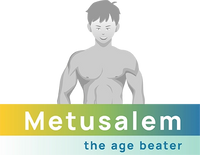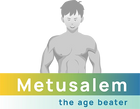Lifelong Learning: A Path to Mental Sharpness

Frequently Asked Questions
1. What is lifelong learning?
2. How does lifelong learning enhance mental acuity?
3. What are some benefits of lifelong learning?
4. What are noble fullerenes and their role in cognitive health?
5. What strategies can help in incorporating lifelong learning into daily life?
In today's fast-paced world, the importance of maintaining our mental acuity cannot be overstated. Lifelong learning is increasingly recognised as a powerful tool not only for intellectual development but also for enhancing mental sharpness. In this blog post, we delve into the concept of lifelong learning, explore its connection to mental acuity, and introduce the fascinating world of noble fullerenes as innovative agents supporting cognitive health.
Understanding Lifelong Learning
Lifelong learning refers to the continuous, voluntary, and self-motivated pursuit of knowledge for personal or professional development. While formal education plays a significant role in shaping our knowledge base, the journey of learning does not end with graduation. In fact, it is vital that we keep the doors of curiosity and education wide open throughout our lives.
The Benefits of Lifelong Learning
Engaging in lifelong learning brings numerous benefits that extend beyond mere knowledge acquisition. Here are some key advantages:
- Enhanced Cognitive Skills: Regular engagement in learning activities stimulates brain function, improving memory, attention, and problem-solving skills.
- Adaptability: In a rapidly changing world, lifelong learning enables individuals to stay relevant and competitive in their careers.
- Increased Confidence: Gaining new skills and knowledge can boost self-esteem and encourage individuals to take on new challenges.
- Social Engagement: Lifelong learners often join communities or groups, fostering relationships with like-minded individuals and enhancing their social networks.
- Mental Health Benefits: Staying mentally active through learning can reduce the risk of cognitive decline and associated mental health issues.
The Link Between Lifelong Learning and Mental Acuity
Perhaps the most compelling reason to engage in lifelong learning is its profound impact on mental acuity. Research consistently shows that mental stimulation is crucial for maintaining cognitive functions as we age. Engaging in new experiences, tackling challenges, and keeping the brain active can lead to significant improvements in mental performance.
How Learning Stimulates the Brain
When we learn something new, our brains are forced to form new neural connections. This neuroplasticity is essential for cognitive health. Lifelong learning can include:
- Taking up a new skill: Whether it's learning a musical instrument or a new language, each new skill challenges the brain differently.
- Reading and writing: Engaging with new literature or journaling encourages reflective thinking and raises cognitive function.
- Participating in courses: Online courses or workshops present fantastic opportunities for structured learning and personal growth.
- Social activities: Discussions and collaborations with others stimulate critical thinking and adaptability.
The Science Behind Cognitive Health
While the correlation between lifelong learning and mental acuity is well-supported, some intriguing studies have investigated the biochemical processes involved. One area of research involves noble fullerenes, a form of carbon that displays unique properties beneficial to our health.
Noble Fullerenes and Cognitive Enhancement
Noble fullerenes are spherical molecules that have garnered attention for their potential antioxidant properties. These remarkable compounds have been found to protect cells against oxidative stress, a factor that significantly impacts cognitive function and overall brain health. By protecting neurons, noble fullerenes may help in combating age-related cognitive decline.
Although more research is needed to fully understand their effects, incorporating noble fullerenes into a wellness routine, paired with lifelong learning, could foster an optimal environment for mental agility.
Practical Strategies for Lifelong Learning
Are you inspired to become a lifelong learner? Implementing effective strategies to incorporate learning into your daily life is crucial. Here are some practical tips:
- Set Goals: Determine what skills or topics you want to learn and set achievable goals to guide your progress.
- Create a Learning Environment: Designate a space at home where you can focus on learning without distractions.
- Utilise Online Resources: Take advantage of online platforms that offer free and paid courses on a myriad of subjects.
- Engage in Discussions: Participate in forums or groups where you can share knowledge and insights with others.
- Stay Curious: Embrace a mindset of curiosity about the world around you and explore topics outside of your comfort zone.
Overcoming Barriers to Lifelong Learning
Despite the myriad benefits of lifelong learning, many individuals encounter obstacles that may deter them from pursuing it. Here are some common barriers and ways to overcome them:
Lack of Time
Busy lifestyles often leave little room for learning. To combat this, try integrating learning into daily routines. Consider allocating just 15-30 minutes per day for reading, online courses, or even educational podcasts during commutes.
Fear of Failure
Many individuals hesitate to engage in new learning experiences due to the fear of failure. Embrace a growth mindset by viewing mistakes as valuable learning opportunities. Remember, cultivation of knowledge often comes through trial and error.
Limited Access to Resources
For some, accessibility to learning resources can be a challenge. Fortunately, there is a wealth of free or low-cost online resources available today. Libraries, open courseware, and community education programs can bridge this gap and offer diverse learning opportunities.
Celebrating Your Learning Journey
As you embark on your lifelong learning journey, remember to celebrate your accomplishments, no matter how small. Acknowledge each new skill you acquire, any knowledge you gain, and every milestone you reach. This positive reinforcement will motivate you to continue your quest for knowledge and mental enhancement.
Future of Learning and Cognition
The future of personal and collective development lies not only in technological advancements but profoundly in our dedication to lifelong learning. As we continue to explore the benefits of noble fullerenes and their role in cognitive health, we will undoubtedly uncover even more ways to enhance our mental acuity through learning.
Your Adventure Begins Now
Ultimately, the journey of learning can lead to a richer life filled with purpose and achievement. Embrace the idea of lifelong learning and remember the potential benefits for your mental acuity. With a combination of curiosity, practicality, and perhaps even a little help from wonderful substances like noble fullerenes, the path to maintaining sharpness of mind and vibrant living can be yours to navigate.

